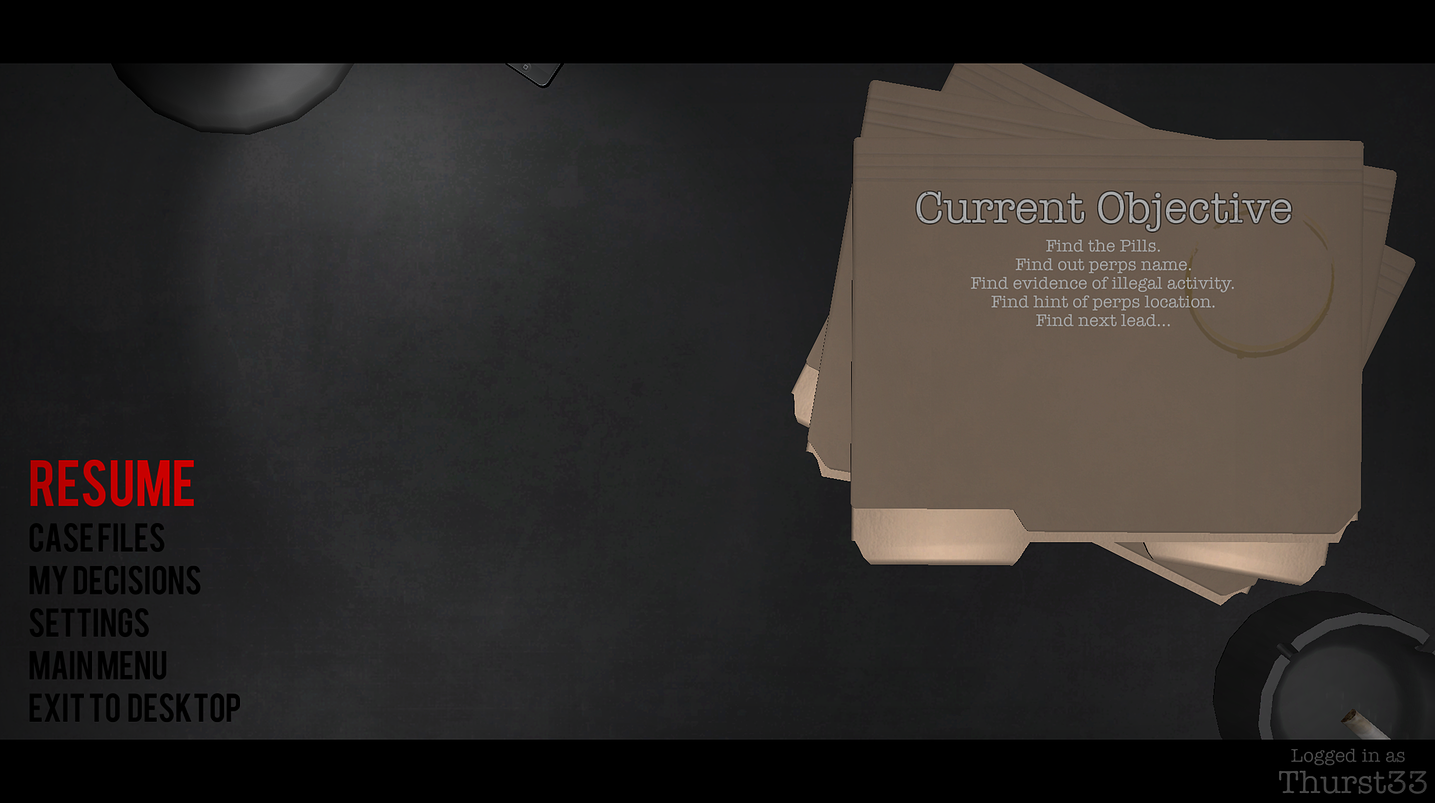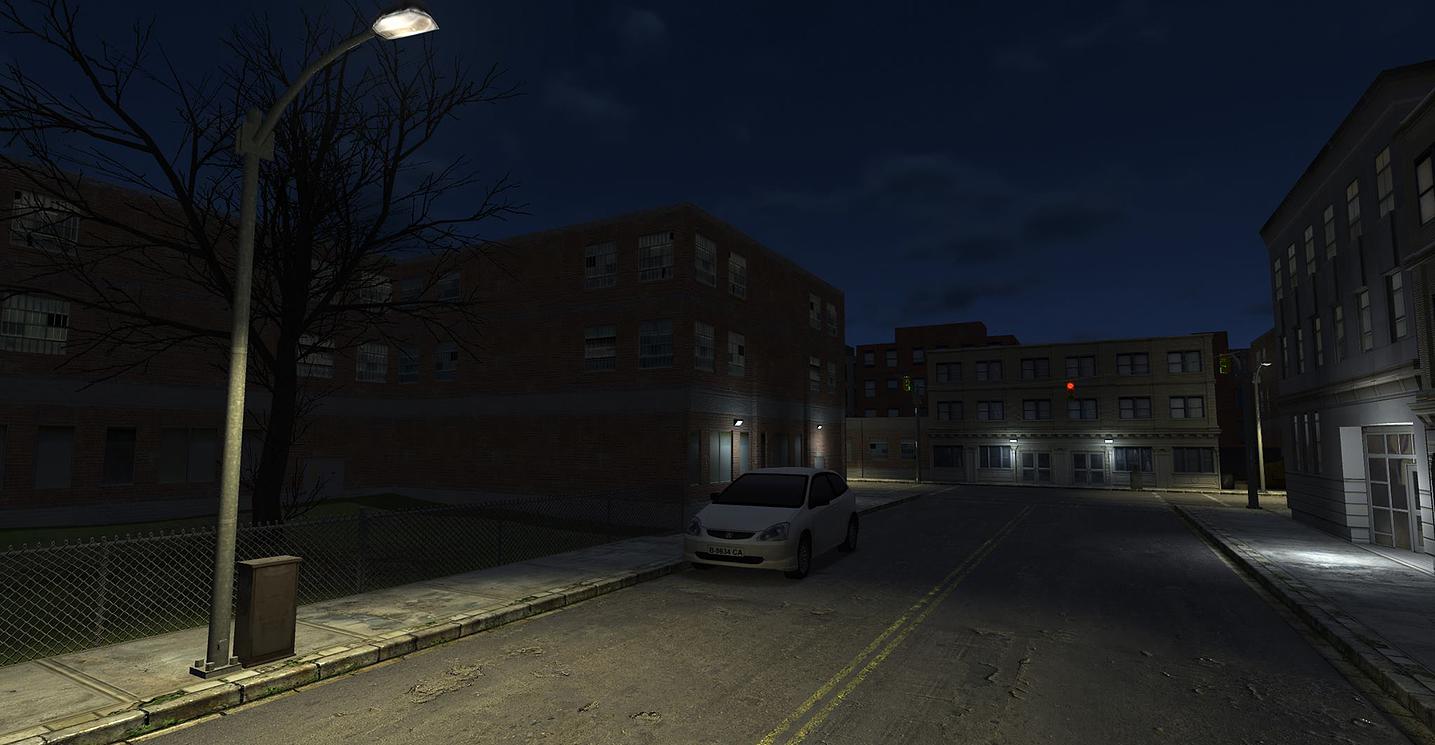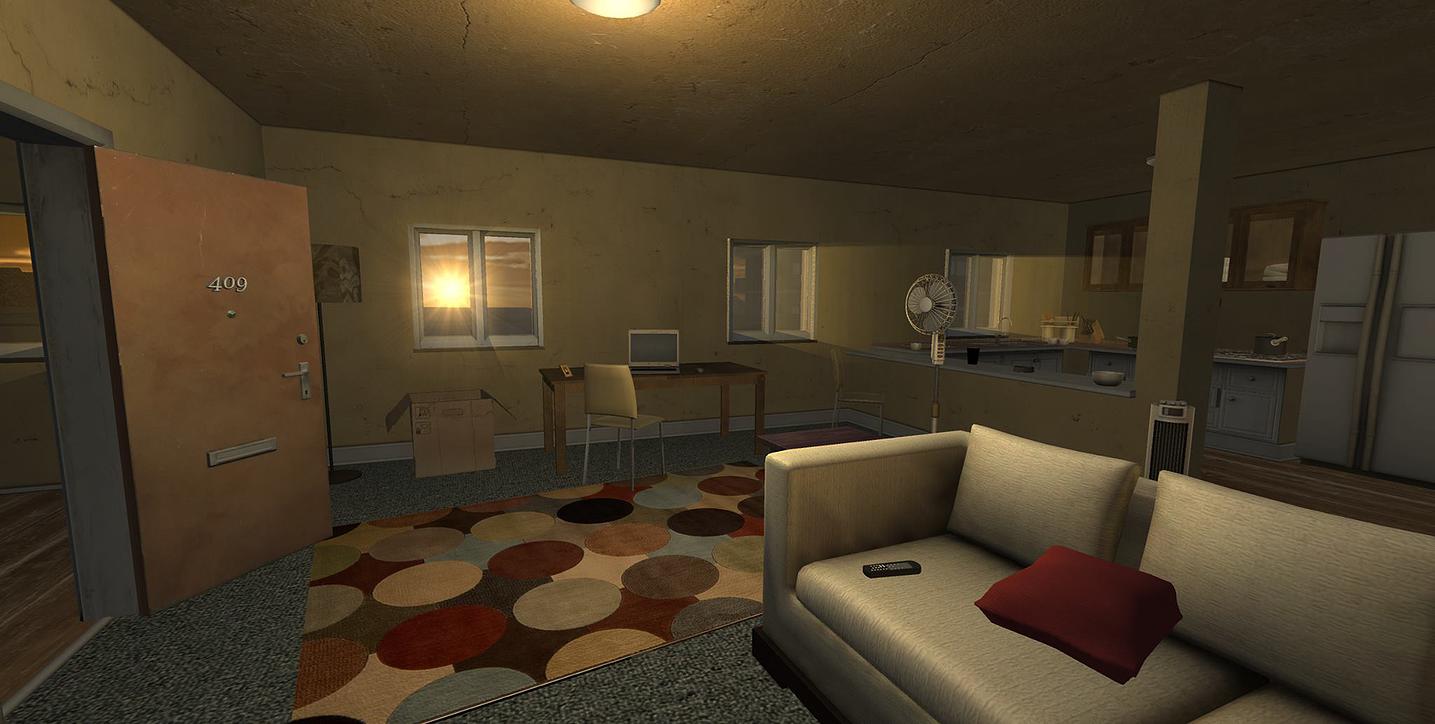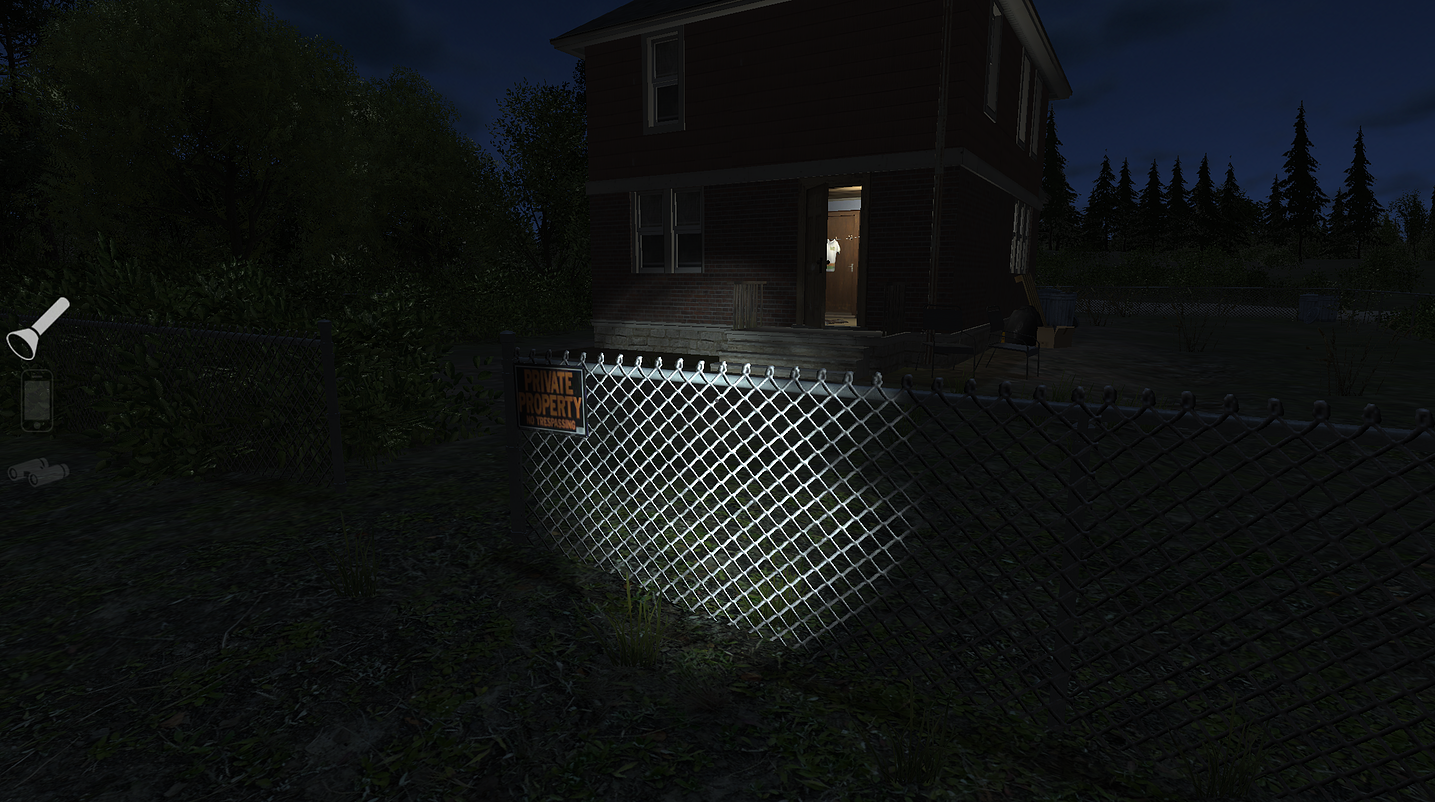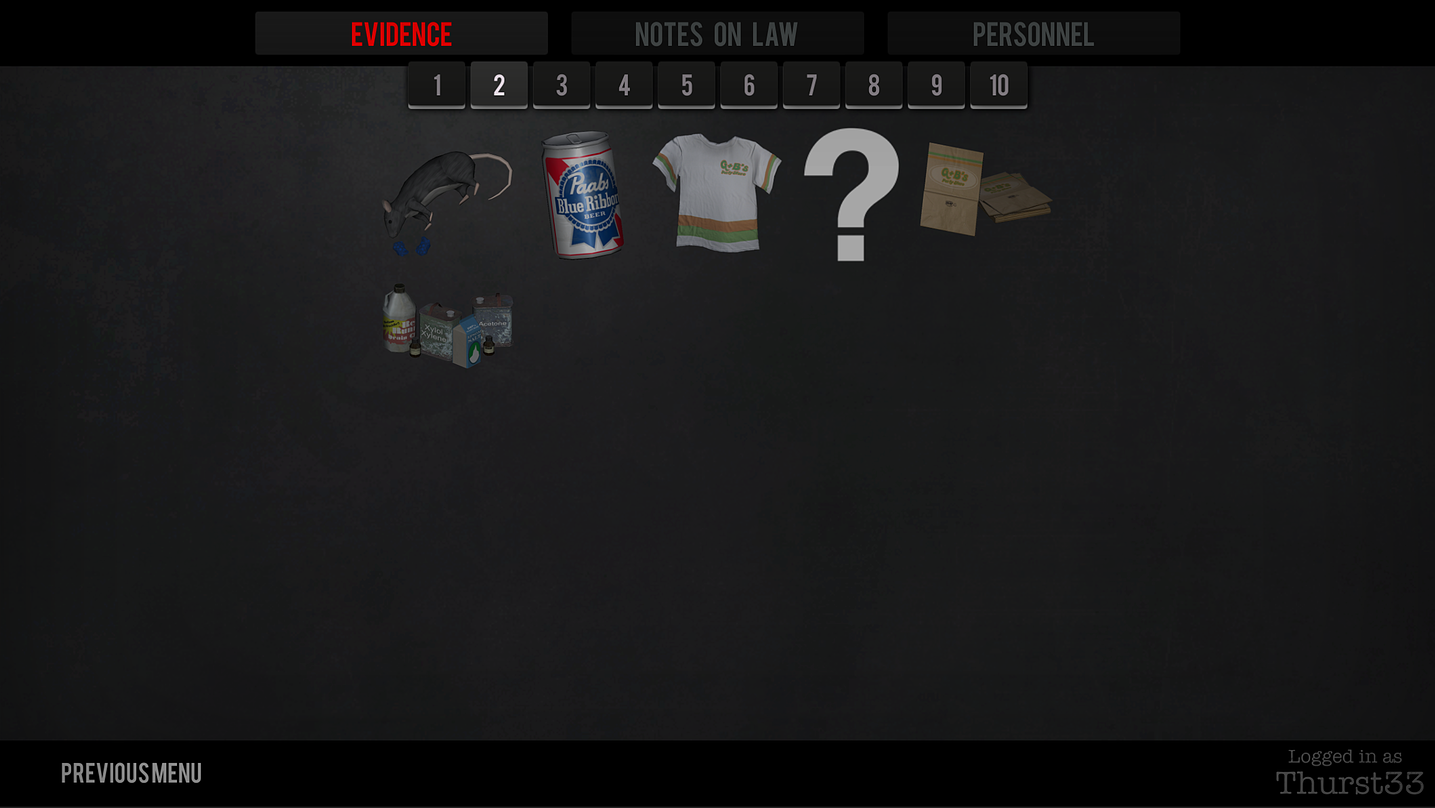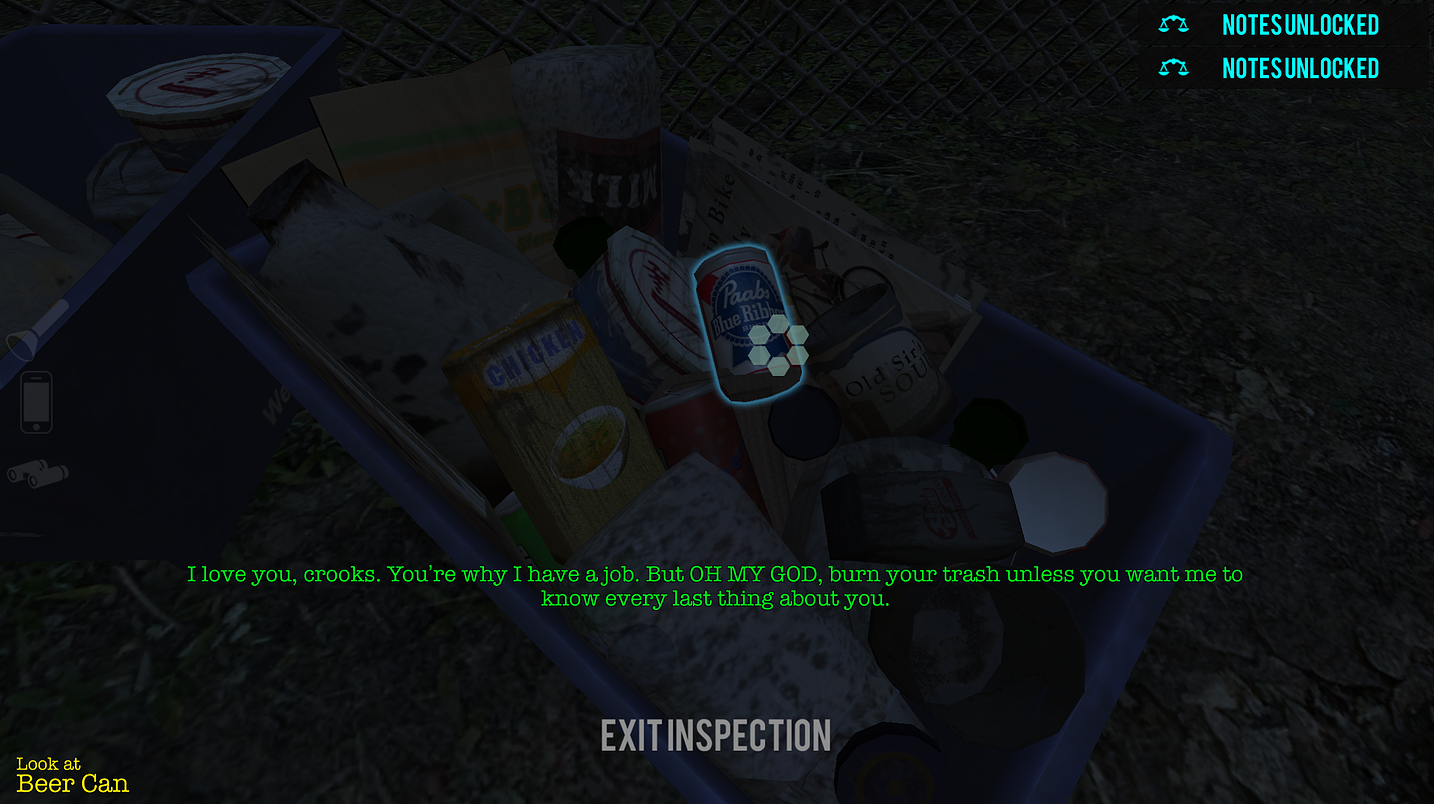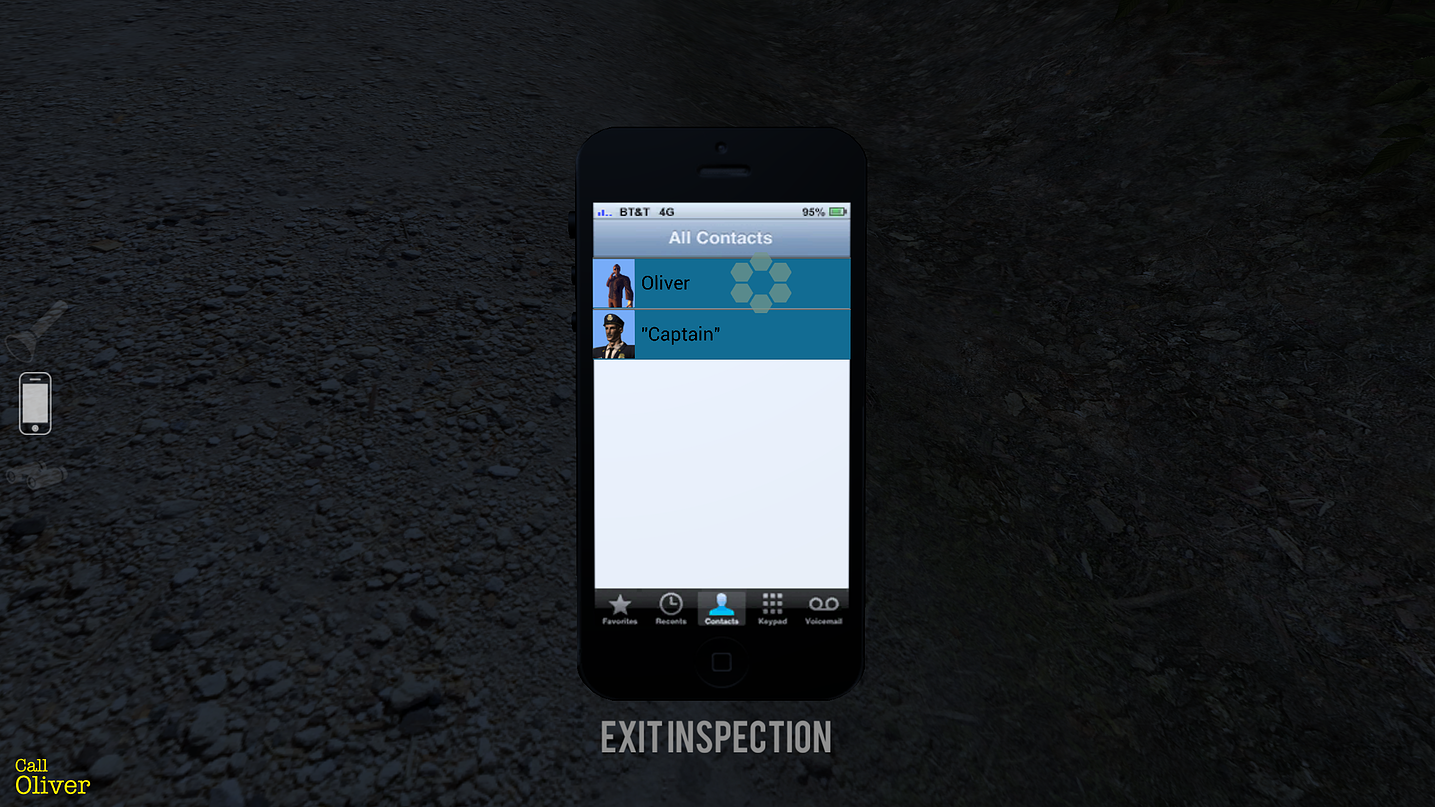Criminal Procedure
Development Time: July 2014 - Now (in terms of my involvement)
Role: Programmer
Tasks: Setting up various systems to
supplement the core gameplay like animation
systems, 'evidence' and 'notes on law' systems,
and adding functionality to the existing Dialog
plugin the project is built on.
Criminal Procedure (working title) is a game the GEL Lab is working on in association with the MSU Law College. The game is tied to a specific Law course, and the students of that course will play the game to reinforce and test their understanding of the material taught in lectures. The basic structure of the game is akin to something like L.A. Noire (ambitious, I know), letting the player control a police officer as they investigate crimes. In the process of their investigation, the player will often be put in situations where they have to decide if acquiring a piece of evidence is legal, and illegally acquired evidence is rendered inadmissible. Every time the player makes a decision like this, a corresponding prompt will show a "note on law" specifying the legality of the decision and more details of the law it pertains to. These decision points are tracked by the game and integrated into a database the professor of the course can use to see player information or change the wording or context of these notes on law.
For my part, I worked a lot on systems to generate, populate, and track these pieces of evidence and notes on law. The game was in development for a long while before I came on board, and uses a fairly popular and extensive Dialogue Manager, so I also had to integrate support for my evidence systems into the Dialogue Manager. Beyond that, I worked a bit on animation systems for NPCs and various small tasks to help the designers build the content in the game (it's a fairly long game, so the designers have a lot of content to produce).
It's been really interesting to work on a game of this scope, as it's been in development for longer than anything else I've worked on and entails a lot more content. And seeing the way common video game mechanisms can be used to teach concepts of law has been really interesting.
